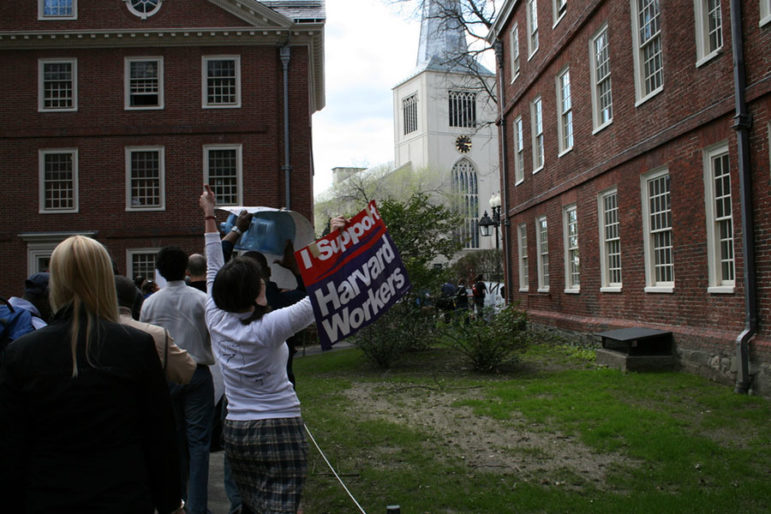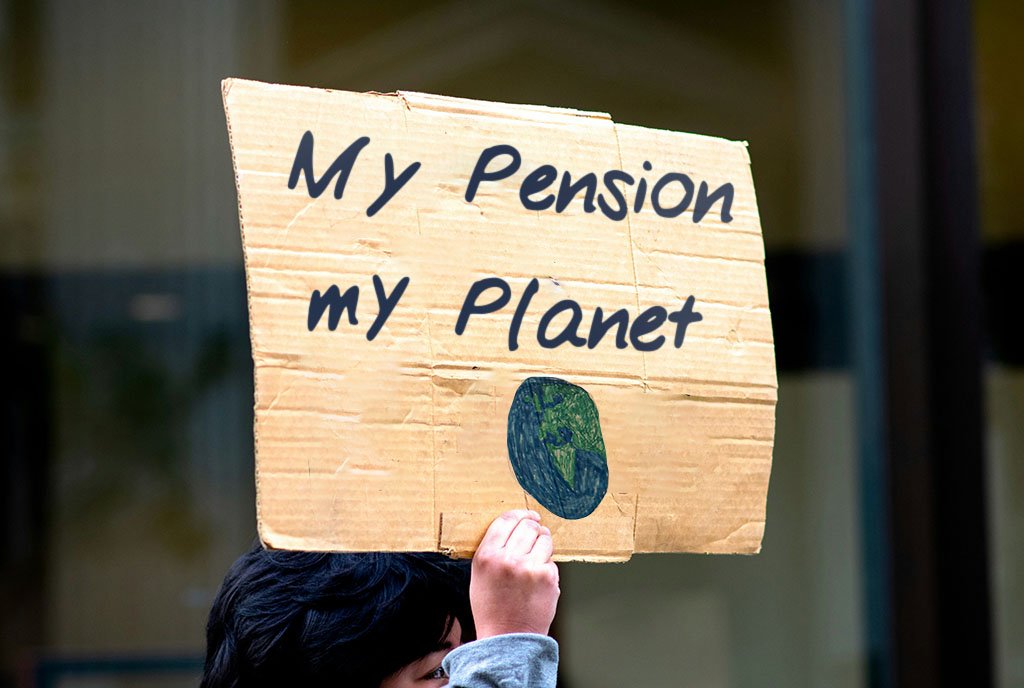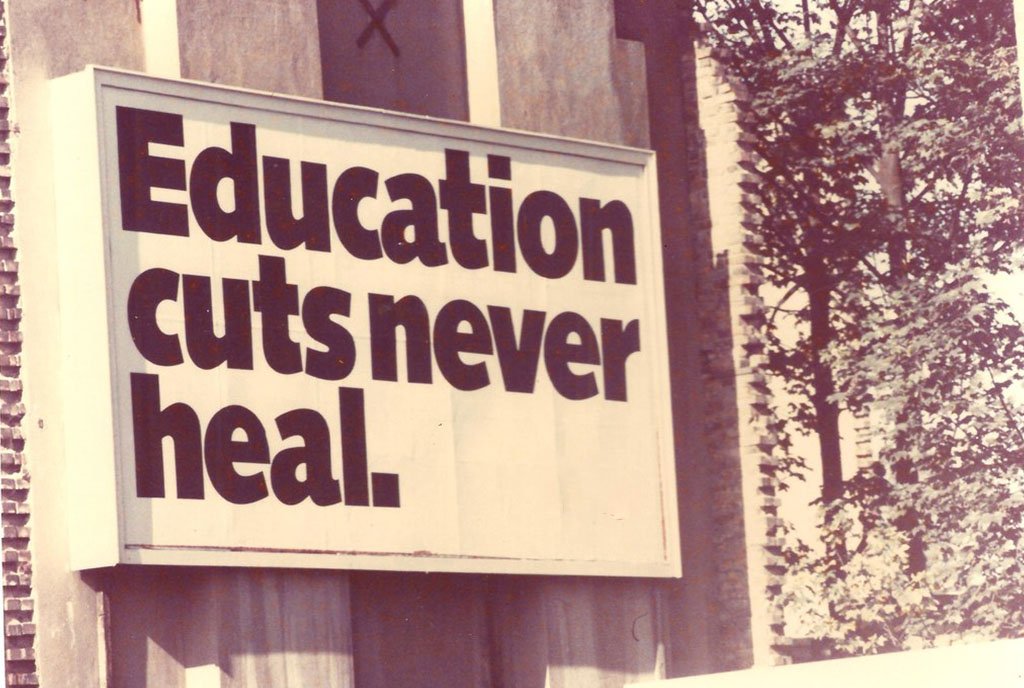
October 26, 2016; Chronicle of Higher Education
On Tuesday, we reported in our nonprofit newswire that the dining hall workers at Harvard had reached a “tentative agreement” with the university. And yesterday, we heard word that the contract essentially required no concessions of the workers. They got what they asked for: at least $35,000 a year and coverage of what were to have been additional healthcare costs. Wages will be retroactively raised by more than 2.5 percent a year.
“We achieved every goal without exception, with no concessions to Harvard,” Unite Here Local 26 President Brian Lang said.
We wonder what went on behind the scenes. Did a donor, or two or three, express moral indignation after that article by one of the dining hall workers appeared in the New York Times? Was it the support for the strikers voiced by the Boston and Cambridge City Councils, or the juxtaposition of the poverty they were studying with a new multimillion-dollar grant with the poverty they were abetting? Was it the Boston Globe’s editorial board making its opinion known? Or was it a combination of all of the above, with a generous portion of student activism thrown in? More than 500 students organized by the Student Labor Action Movement (SLAM) walked out of class on Tuesday in support of the strikers.
Katie Lapp, Harvard’s executive vice president, commented in a statement that the five-year agreement “represents a fair and reasonable resolution to negotiations. […] The university has sought a resolution that maintains superior compensation for our dining workers, acknowledging their role as integral members of the Harvard community.”
The Harvard Crimson describes the moment that the union negotiators walked out to greet those still protesting at 1 am or thereabouts on Tuesday morning.
Abhinav Reddy, a School of Public Health student and graduate student union organizer, described the final moments of the night. Local 26’s bargaining team joined the demonstrators remaining outside, he said, and “everyone gathered back up and started chanting.”
“You could just see it on their faces before they even said anything,” Reddy said. “And everybody was like screaming and yelling, and then they said ‘we won, we got it.’”
SLAM member Grace F. Evans ’19, also present at the negotiations’ conclusion, said workers came out of the building visibly emotional before Lang announced to the assembled crowd of supporters that the union had “won.”
“It was a really emotional moment,” she said. “The workers were crying but Brian Lang was smiling, so we knew it was good news.”
Sign up for our free newsletters
Subscribe to NPQ's newsletters to have our top stories delivered directly to your inbox.
By signing up, you agree to our privacy policy and terms of use, and to receive messages from NPQ and our partners.
Here is an excerpt from the Boston Globe editorial:
Although the labor standoff in Cambridge involves one of the world’s most prestigious universities, it follows a familiar pattern: a large institution trying to save money on the backs of its lowest-paid workers…
The editorial brought up the tax breaks given to the institution by Boston and Cambridge and its responsibility to the regional economy, and then it concluded…
The timing of the strike packs at least a bit of irony at a university renowned for its study of income inequality and poverty.
“Here we have a benefactor who’s donated $2 million to study race relations when an endemic outcome of centuries of racism is protesting outside Harvard’s windows,” says Sandhira Wijayaratne, a Harvard Medical School student who’s part of the Racial Justice Coalition on campus supporting the cafeteria workers’ strike. Many of the cafeteria workers are immigrants, and more than half identify as people of color.
“If the university really wants to demonstrate its commitment to racial equity, a strong first step would be to pay its dining workers fairly and provide them with affordable health insurance.”
He’s right.
Your move, Harvard.
Harvard’s concession comes just as Tufts janitors are facing a strike vote. Overall, the question that has been long brewing regarding the responsibility of such nonprofits to play fair with their employees and local communities is being called by Congress and local communities alike.—Ruth McCambridge












